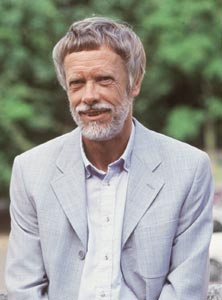Outreach should be recognized as a natural part of scientific research, and hence of its funding, argues Erik Johansson.

Science and technology play an increasingly important role in our everyday lives, and many of life’s decisions now depend on some sort of scientific or technical knowledge. At the same time, advances in modern science occur quickly as each subject evolves and entirely new subjects are created, so it is often difficult for the general public and for teachers to keep up with scientific discoveries and technological innovations. However, science can be made more accessible and interesting to students, teachers and the public if they are exposed to the exciting ideas and discoveries of the latest research, for example in the field of high-energy particle physics.
Research in particle physics involves advanced technology, such as the large-scale use of superconductivity, precision particle detectors, and state-of-the-art electronics and computing systems. The technology of particle accelerators and detectors can also be applied to medicine and many other areas of science and industry, bringing alive the “appliance of science” to everyday life. Moreover, research has led to advances in information technology, such as the World Wide Web, which can bring about a “high tech” approach to learning about science. Aspects of classical physics, such as electromagnetism, optics and kinematics, can also be given a new lease of life through examples from modern physics, as compared with traditional teaching.
It is now generally agreed that education and awareness in science have to be strengthened in modern society. Indeed during the past few years increasing efforts have been made to improve awareness in the general public – especially young people in schools – of the importance of natural science to everyone. Scientific outreach, which promotes awareness and an appreciation of current research, has become an essential task for the research community and for many scientists.
As a result of an increased awareness of the importance of outreach activities, the European particle-physics community created the European Particle Physics Outreach Group (EPOG) in 1997 to promote outreach activities in particle physics. EPOG members represent the particle-physics communities of the 20 member states of CERN and, more recently, the US, together with the major laboratories of CERN, DESY and INFN. The group has received its mandate from the High Energy Particle Physics (HEPP) division of the European Physical Society (EPS) and the European Committee for Future Accelerators (ECFA). EPOG aims to help make scientific results and discoveries accessible to schools and the general public, and to introduce modern science into the school curricula.
Since its inception, the members of EPOG have both learned from each other and worked together on joint activities. There are many particle physicists active within their own countries who are working on a variety of initiatives, such as the development of new teaching materials, the translation of materials, workshops and masterclasses for both students and teachers, and visits to CERN. This work is often undertaken on a voluntary basis, with little or no official funding, and is dependent on the goodwill of the hardworking contributors and their institutions.
To be really successful though, outreach activities have to be done in a professional manner. Leading scientists who have a specialist knowledge in their subjects can form a powerful team with educators and those familiar with modern techniques in disseminating information to large groups of people. However, as we are competing with television and other leisure pursuits, outreach activities also require proper funding to be able to produce an attractive and engaging image of the natural sciences.
For this reason EPOG, together with ECFA and the EPS HEPP division, has written to a number of science research councils and other funding bodies in various countries to encourage them to recognize scientific outreach as an important and natural part of the research process, and to make financing available to the scientists for professional outreach activities. As we say in the letter, we realize that in some countries the importance of scientific outreach activities has already been recognized and is regarded as a natural part of the research activity. A particularly good example is the awareness in the US, which has resulted in organized funding. In many other countries, however, this is still not the case, and we believe that proper funding is crucial for an increased interest in and awareness of science and technology.
In summary, it is important that outreach activities are taken seriously by the bodies that fund our research. They should be recognized as a natural and logical part of research, and as an important link between research and society. With appropriate funding we could have the opportunity to make our mark and, who knows, to make a real difference.








